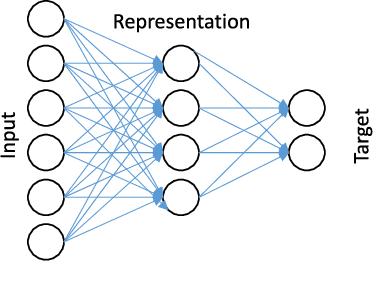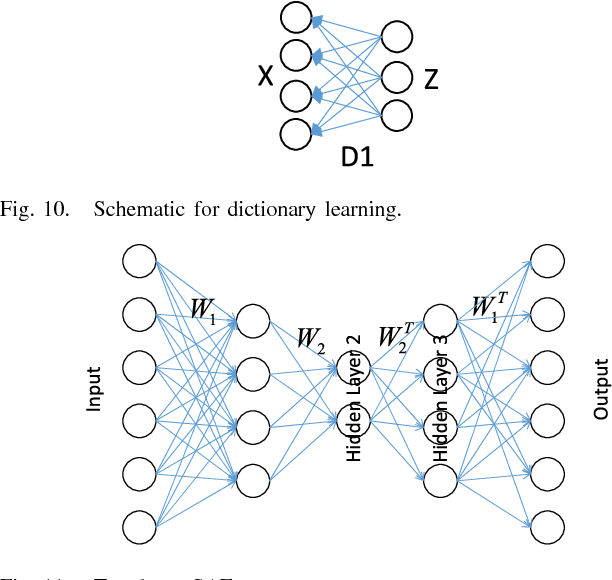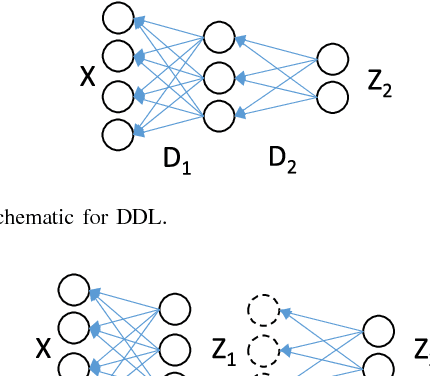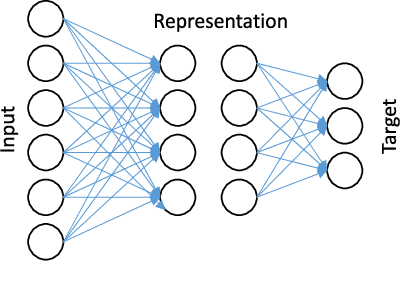Snigdha Tariyal
Discriminative Robust Deep Dictionary Learning for Hyperspectral Image Classification
Dec 11, 2019



Abstract:This work proposes a new framework for deep learning that has been particularly tailored for hyperspectral image classification. We learn multiple levels of dictionaries in a robust fashion. The last layer is discriminative that learns a linear classifier. The training proceeds greedily, at a time a single level of dictionary is learnt and the coefficients used to train the next level. The coefficients from the final level are used for classification. Robustness is incorporated by minimizing the absolute deviations instead of the more popular Euclidean norm. The inbuilt robustness helps combat mixed noise (Gaussian and sparse) present in hyperspectral images. Results show that our proposed techniques outperforms all other deep learning methods Deep Belief Network (DBN), Stacked Autoencoder (SAE) and Convolutional Neural Network (CNN). The experiments have been carried out on benchmark hyperspectral imaging datasets.
Greedy Deep Dictionary Learning
Jan 31, 2016



Abstract:In this work we propose a new deep learning tool called deep dictionary learning. Multi-level dictionaries are learnt in a greedy fashion, one layer at a time. This requires solving a simple (shallow) dictionary learning problem, the solution to this is well known. We apply the proposed technique on some benchmark deep learning datasets. We compare our results with other deep learning tools like stacked autoencoder and deep belief network; and state of the art supervised dictionary learning tools like discriminative KSVD and label consistent KSVD. Our method yields better results than all.
 Add to Chrome
Add to Chrome Add to Firefox
Add to Firefox Add to Edge
Add to Edge